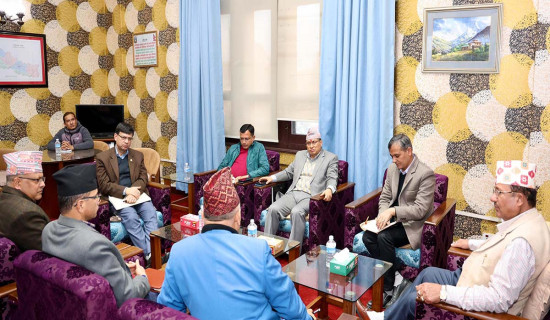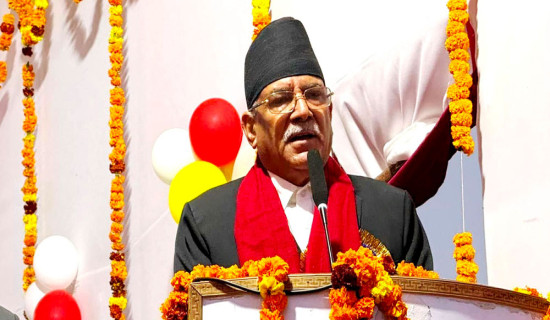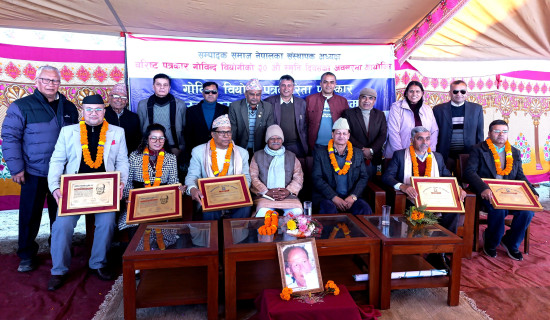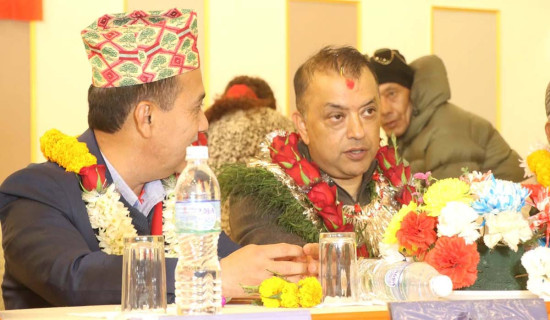- Sunday, 18 January 2026
Senior Citizens' Welfare
The social security allowance, introduced in 1995, has become a vital support for senior citizens, especially for those living in rural areas where poverty is rampant. Despite Nepal's success in enhancing social security allowances, there is a long way to go before the elderly people enjoy security, dignity, and well-being. Starting with modest 100-rupees, the senior citizen allowance has now increased to Rs. 4,000 monthly which has financially helped senior citizens to manage their basic needs, including food and clothing. There needs to be a comprehensive and multi-faceted approach to address the need of the elderly populace.
As per a 2017 UNICEF report, a country is considered an ageing society when 7 per cent or more of its total population consists of individuals aged 65 and above. When this figure reaches 14 per cent, it is classified as an aged society. According to the calculations of the National Planning Commission, UNICEF, and the Population Council, Nepal will be classified as an ageing society by 2028 and an aged society by 2054. The growing number of elderly individuals requires immediate attention to their social, economic, and health needs, which in turn affects productivity and society as a whole.
Deputy Prime Minister and Finance Minister Bishnu Prasad Paudel's promise to assist seniors by the establishment of a senior citizen's meeting centre in Tilotamma, Rupandehi, demonstrates a commitment to the welfare of the elderly. While such initiatives are valuable, the problems at hand call for multi-dimensional interventions on many fronts. One major issue is the dire state of healthcare services meant for senior citizens. Many elderly persons are afflicted with chronic diseases that require continuous medical care. Many of them are deprived of accessible geriatric care in rural areas. It is essential to prioritise geriatric wards and senior care facilities. Due to urbanisation and migration, there is a decline of joint families. So, the government must address the growing challenges in elderly welfare by establishing structured support systems.
The government must work towards establishing more community-based elderly care centres, like the senior citizen's meeting centre in Rupandehi, across the country. Such facilities offer not only day-care services but also increase social interaction, which is essential for psychological well-being. The financial security of elderly people, apart from the social security allowance, is another aspect that has been neglected. The present pension and welfare system is too inadequate to meet the requirements of those elderly people who do not have personal savings or family support. The government is expected to provide more substantive pension programmes that, from an early age, will promote savings and ensure financial security in later retirement years. Encouragement of the private sector in elderly care through insurance and pension plans could also be a vital strategy.
Social inclusion of the elderly people is further needed. In Nepal, many elderly people are found to be in an isolated mode of life, uninvolved in activities at the community level. The government should have policies that encourage intergenerational programmes, whereby the young get to interact and learn from the elderly. This would instill a culture of respect and care while keeping the senior citizens active in society. The government should invest in elderly care and strive towards sustainable policies that adapt to the growing needs of an ageing population.

















